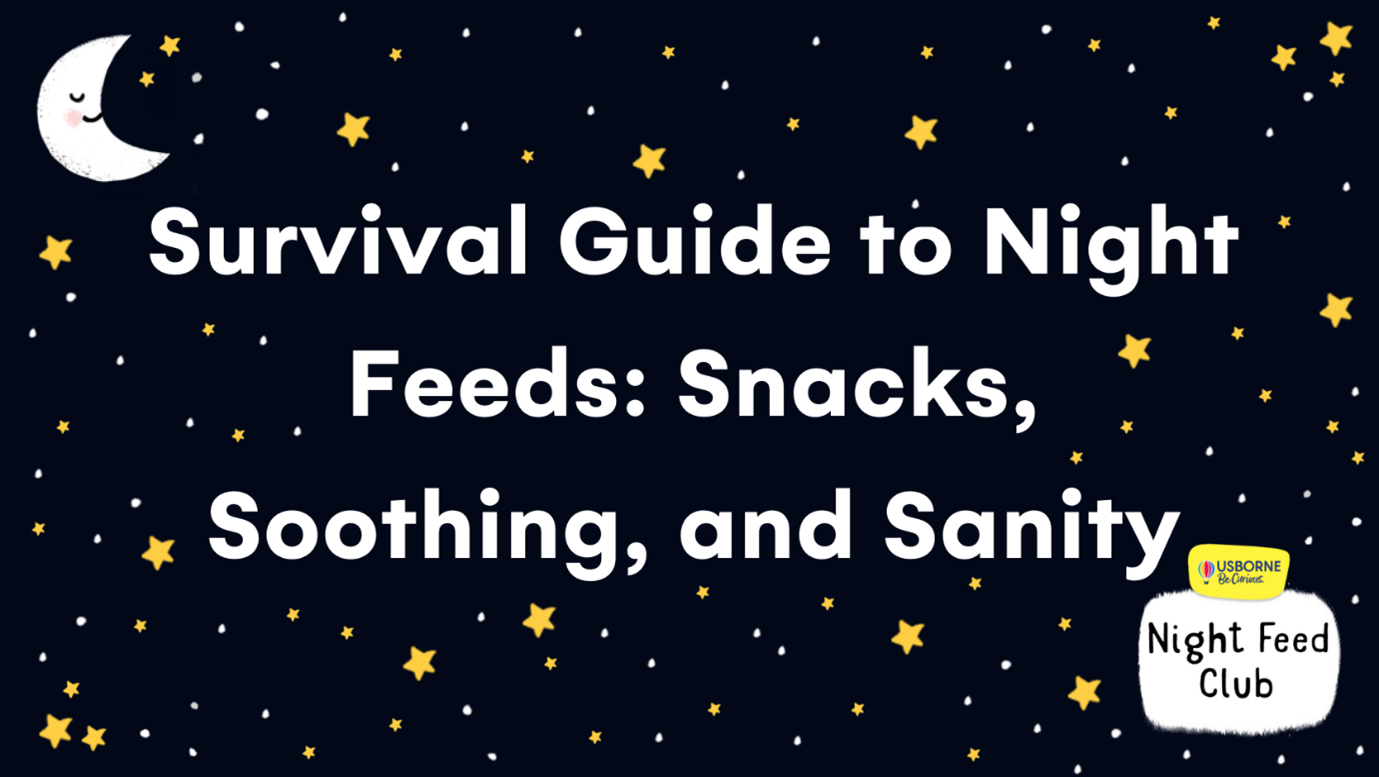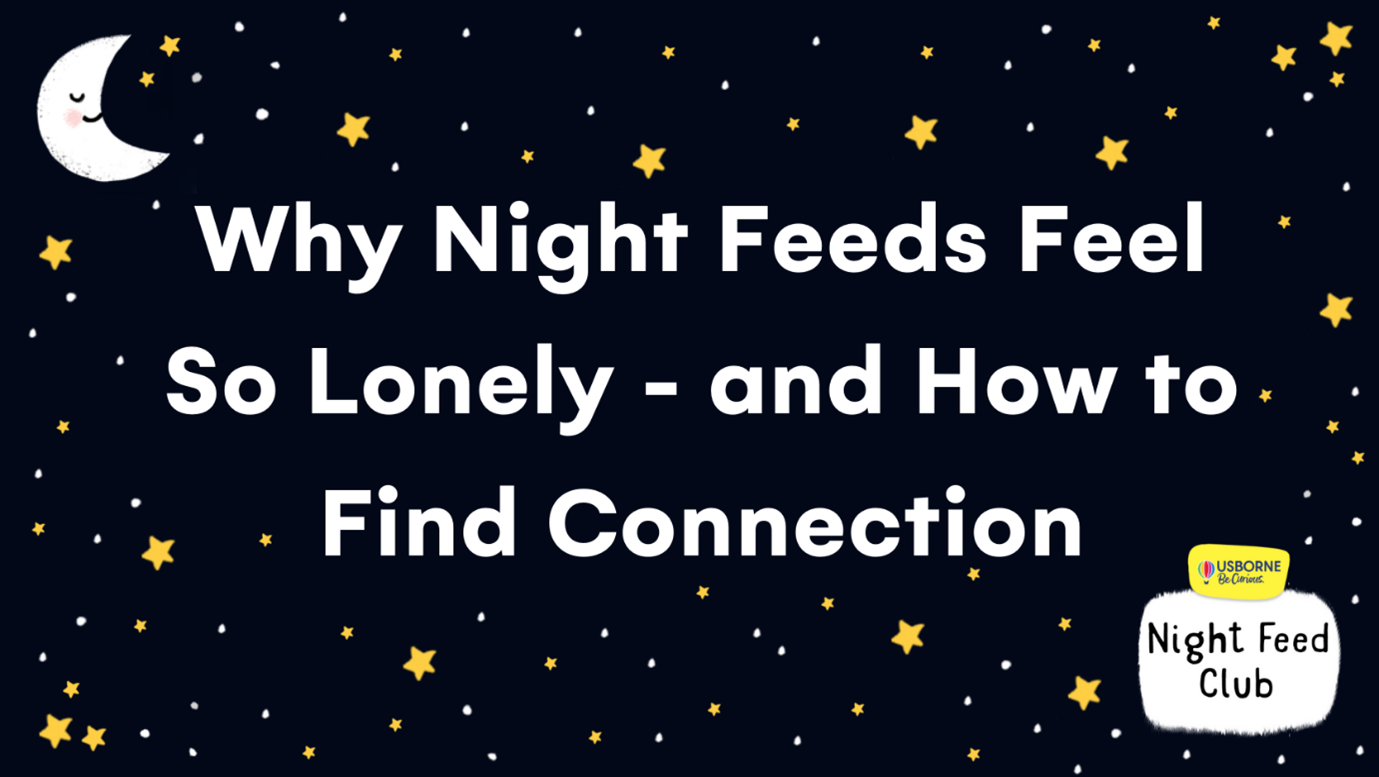- Tips and expert advice
10 Ways your children will benefit from doing jigsaw puzzles
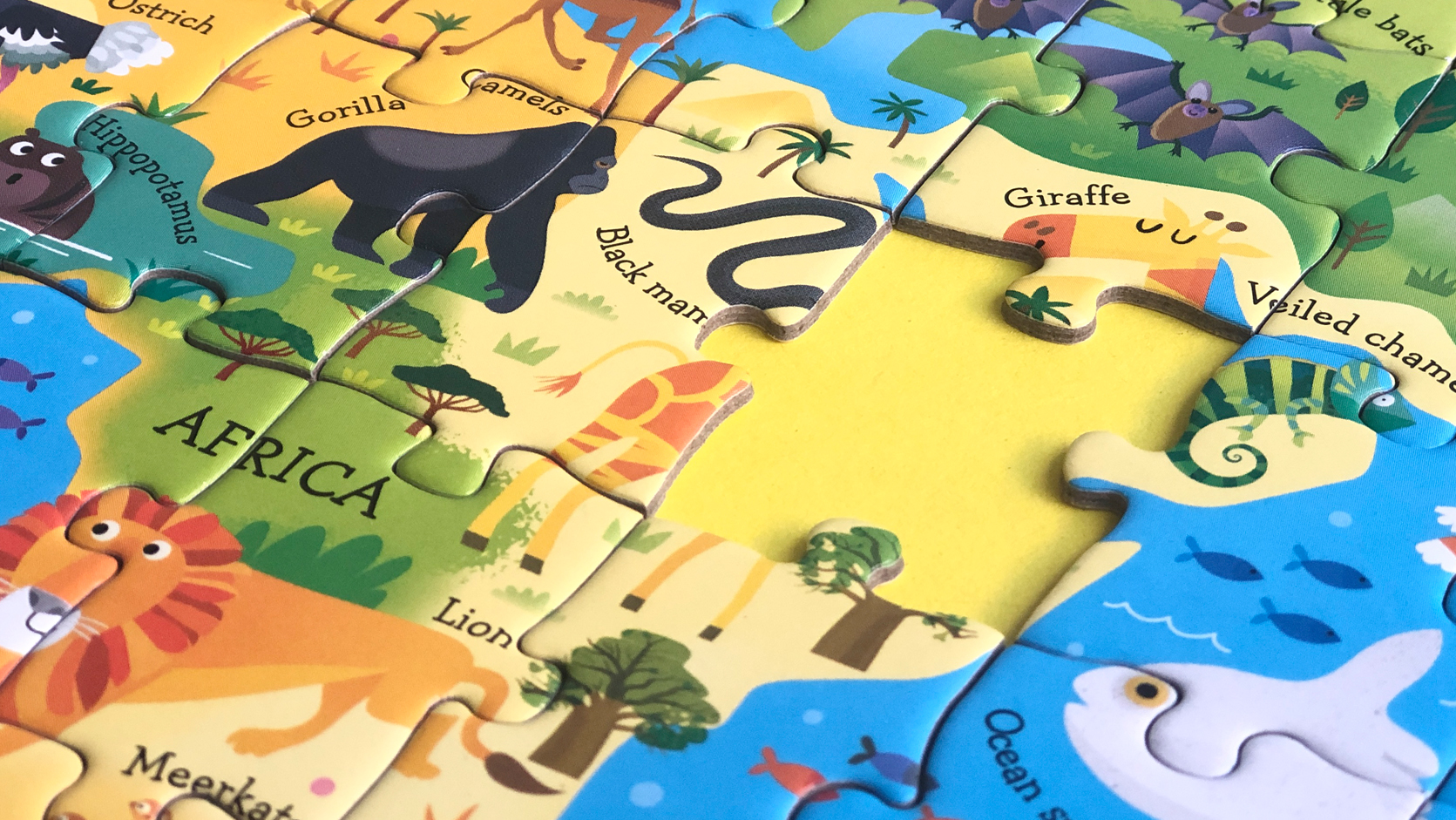
Very few hobbies nowadays don’t require staring at a screen or using technology. Fortunately, reading is one of them – but so is doing a jigsaw puzzle.
Jigsaw puzzles have been around since the 1700s – for good reason – research shows that doing a jigsaw puzzle has lasting benefits on a child’s development, and on both a child and adult’s health and well-being. Some jigsaw fans include Stephen King, Bill Gates and even Queen Elizabeth.
Here are 10 reasons why jigsaw puzzles are fantastic:
1. Fine motor development
Jigsaw puzzles help to develop and refine a child’s fine motor skills. In order to play with a jigsaw puzzle, children need to pick up, pinch and hold pieces, move them around and manipulate them into the correct slots.
2. Hand and eye coordination
Playing with jigsaws requires trial and error. If a piece doesn’t fit, a child must put it down and try another one. This is all fantastic practice for developing a child’s hand and eye coordination.
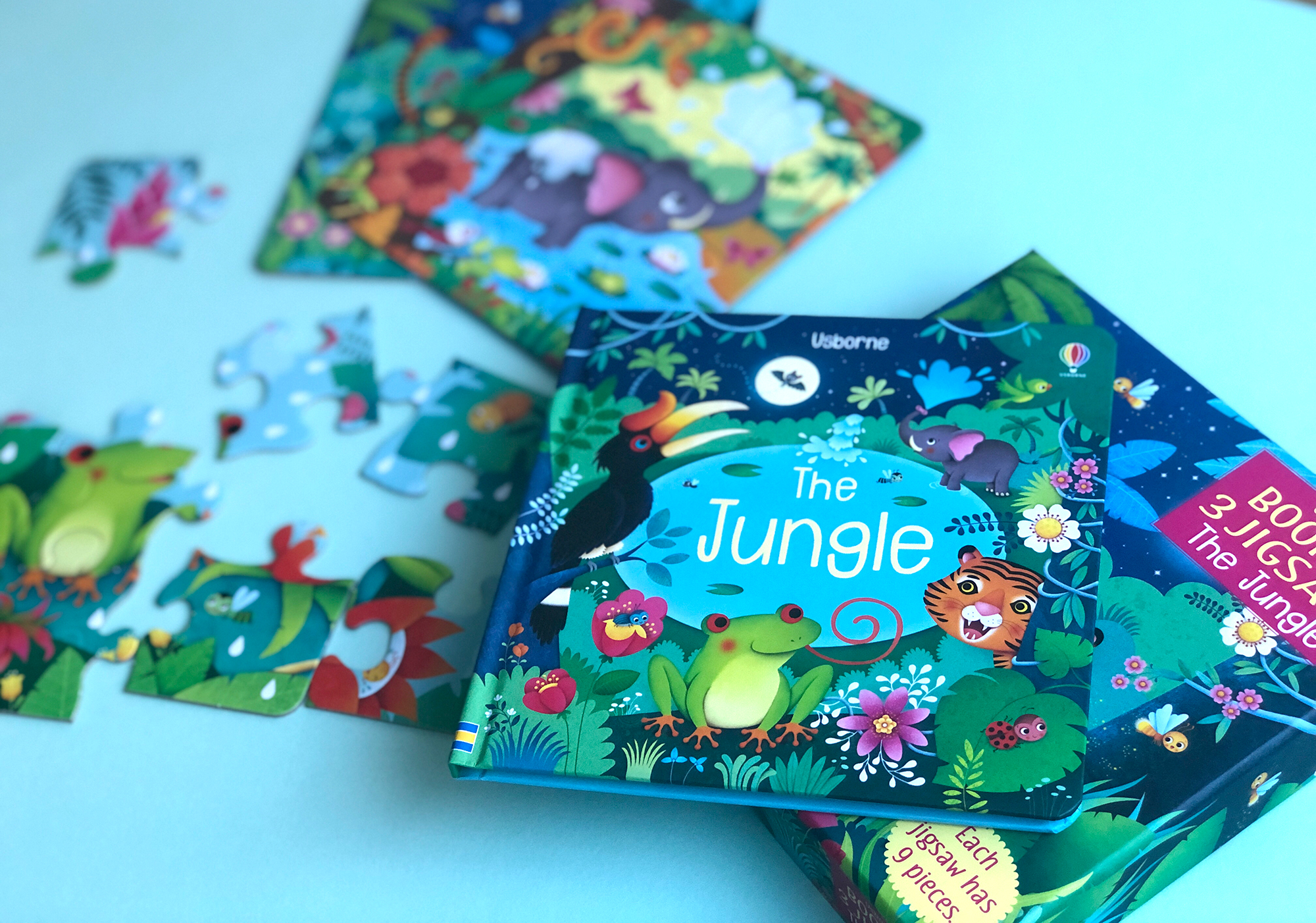
From 9 pieces to 300, Usborne jigsaws are for all ages and abilities
3. Problem solving and logical reasoning
Completing a jigsaw puzzle successfully can’t be cheated so your child needs to use critical thinking, reasoning skills and problem solving – all skills which are valuable in later life.
Children will find that their completion time improves with each puzzle and they begin to think more logically and develop strategies for problem solving, such as sorting pieces by colour and pattern and searching for pieces in certain shapes.
4. Spatial awareness
Clinical trials* have proved that by working out how smaller pieces fit into the bigger picture children develop their skills of movement, depth and distance perception – known to neurologists as visuospatial functioning!
5. Cognitive skills
Jigsaw puzzles come in a wide array of topics. Among Usborne’s vast range there are zoo animals, farm animals, maps and atlases, the solar system, fairy tales and even the periodic table. Jigsaws are a great way of arousing children’s interest in a subject but also committing information to memory – known as subliminal learning or learning through play.
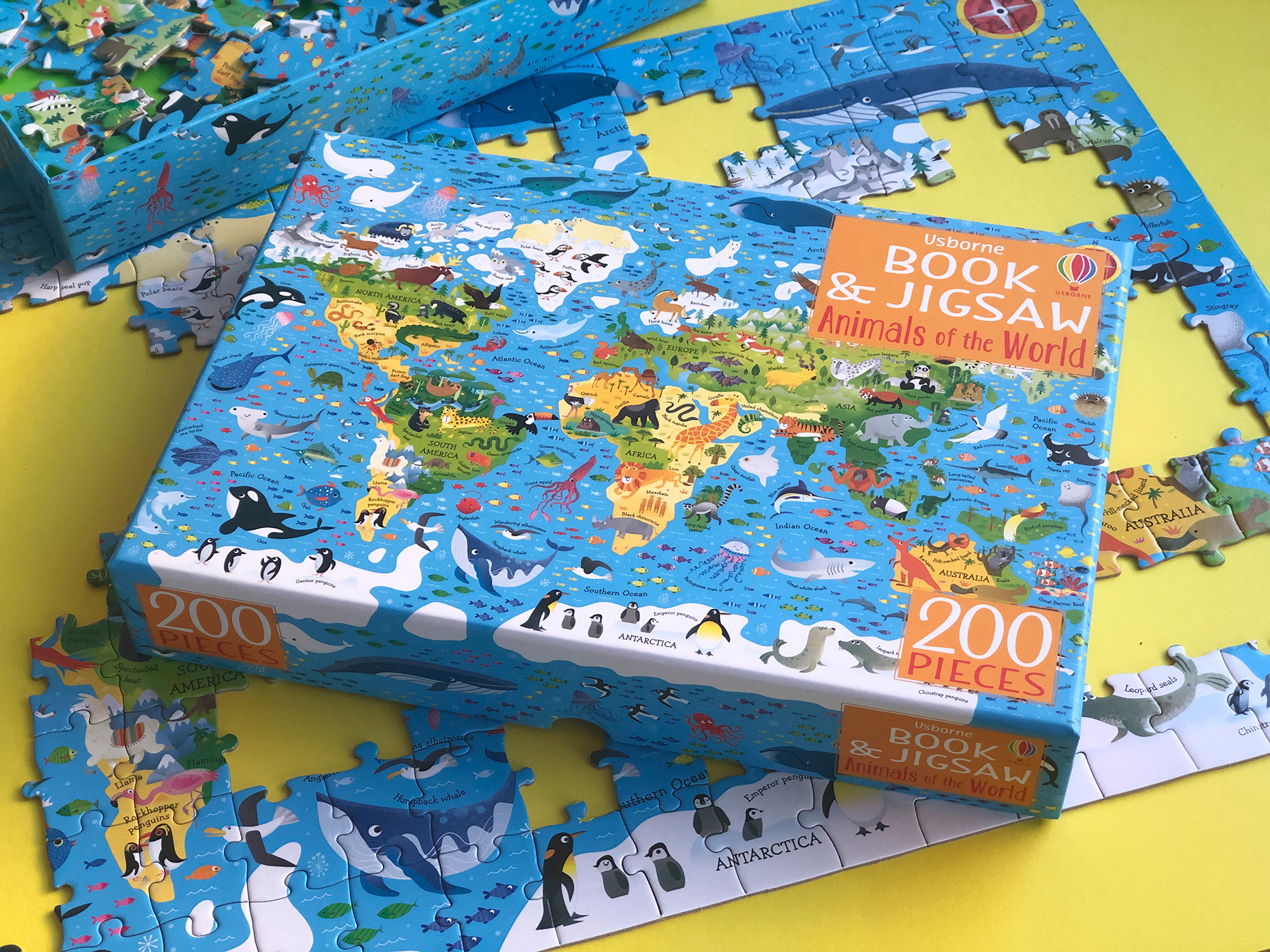
Jigsaws are a great way to learn about the world
6. Improved memory and attention span
Jigsaw puzzles are especially good at reinforcing existing connections between our brain cells and therefore improving short-term memory. One study** reveals that playing jigsaw puzzles can reduce our chances of developing certain types of mental illness, memory loss and dementia later in life. It also helps children to improve their ability to focus for long hours, learning perseverance and patience along the way.
7. Self esteem
“I did it!” Completing a jigsaw puzzle gives children a great sense of satisfaction and pride in themselves. It’s a great boost to self-confidence and self-esteem, which will give them confidence to take on other bigger challenges whilst keeping a positive growth mind-set.
8. Teamwork
By working together as a family or collaborating with a friend over a jigsaw puzzle, a child is practising valuable life skills, such as communication, sharing, turn taking, allocating tasks in order to succeed, and lending support to their team member.
9. Meditative benefits
As children concentrate on a jigsaw puzzle their minds are completely focussed. Whilst tasked with searching for colours and shapes, they’re allowing their brains to let go of any stresses and anxieties, creating calm and well-being.
10. Last, but not least – It’s FUN!
Children of all ages love jigsaw puzzles. As do adults. Don’t just reserve jigsaw puzzles for rainy days, enjoy them together at any time and reap the benefits. A puzzle keeps the whole family entertained for hours on end. Browse Usborne jigsaw puzzles – there’s something for children of every age.
(*) Stella M. Rowley, Early Puzzle Play, Dept of Psychology, University of Chicago for National Institute of Child Health.
(**) Institute of Psychology and Pedagogy & Dept of Neurology, Ulm University, Germany for National Institute of Health.
About the Author
As a child Emma Baxter was an avid reader and loved anything and everything creative - as an adult nothing has changed and she's still unashamedly kidcentric. Following a career in television she now works as Usborne's Global Content Creator - making films and animations, taking photos, writing and feeling delighted to be surrounded by gorgeous books.


